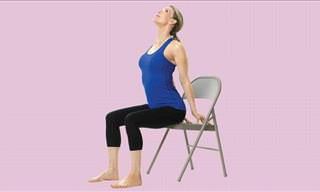Generally speaking, lower back pain always seems worse than it actually is. And while an MRI and x-ray for low back pain may seem like a good idea, they are surprisingly unreliable. Firstly, because things like bulging discs aren't a major cause of concern, secondly, back pain tends to go away on its own and third, trigger points, or muscle knots are common and can be intense but aren't dangerous. More often than not, most patients are better off when they feel confident about these things. In fact, rational confidence is a huge factor in back pain. Though, most healthcare professionals continue to perpetuate the idea of fragile backs.
Nevertheless there are alarming causes of back pain, though they are rare. In such instances, back pain may be a warning sign of cancer or an autoimmune disease. It could also be associated with spinal cord damage. Among those over the age of 55, about one in twenty cases turns out to be a fracture, whereas one in hundred are more ominous.
Still, regardless of the seriousness of your back pain it can suck the joy out of your days for weeks, months or possibly years. Low back pain is classified as ominous when it is caused by a spinal cord trauma, or a progressive disease that can be deadly. Fortunately, such instances are rare.

So, what are the worst possible causes of back pain?
1. Cancer: Usually classified as a tumor in or near the spine. Still, many kinds of cancer can cause different forms of back pain. The pain generally grows steadily and is mostly unaffected by position and activity. They also tend to get worse with weight bearing and at night and usually come with other signs of being unwell.
2. Cauda equina syndrome: Classified as a pinching of the lowest part of the spinal cord. Symptoms usually include difficulty to pass urine, fecal incontinence, numb groin and weak legs. It is caused by a ruptured disc, trauma, cancer or an infection.
3. Spinal infection: Classified as an infection in or near the spinal structures. This can be hard to detect, often for a long time, but usually there's a well-defined tender spot which then develops into a deep constant pain and a rigid spine. Sometimes fever and illness may be present, but not always.
4. Abdominal aneurysm: Classified as a ballooning of a large artery next to the spine. This mostly occurs in people at risk of heart disease, as well as people who are older, heavier, hypertensive smokers and diabetes patients.
5. Ankylosing spondylitis: Classified as inflammatory arthritis of the spine and the pelvis, mostly. Symptoms include long term back pain that starts well before middle age and progresses slowly and erratically. It also tends to improves with activity but not rest and prolonged morning stiffness. It is also more common in men.

Furthermore, there are two back pain situations that you should take seriously right away and without delay. They may be classified as medical emergencies. While they may not necessarily mean that something is horribly wrong, checking it out is extremely important.
1. Incontinence and or numbness around the groin and buttocks.
2. Any accident with forces that may have been sufficient to fracture your spine.
While the aforementioned points require an immediate visit to your doctor, in other circumstances, you generally shouldn't worry about low back pain until three conditions have been met:
1. It's been bothering you for more than six weeks.
2. It's severe or not improving, or actually getting worse.
3. There is at least one other 'red flag' (see below).

These signs or symptoms indicate that you need to pay closer attention to your back pain:
1. The risk of an ominous cause for low back is generally higher if you are under 20 or over 55.
2. Light tapping of the spine is painful.
3. Unexplained fever or chills.
4. Pain in the upper back is associated with a greater cancer risk.
5. Weight loss is a potential sign of cancer.
6. Steroid use, other drug abuse and HIV are all risk factors.
7. If your back pain is accompanied by a general feeling of being unwell, it may be an indication that a disease process is underway.
8. Indicators of autoimmune disease includes a family history of autoimmune disease, gradual yet progressive increase in symptoms before the age of 40, marked by morning stiffness and pain in other joints as well as the low back. Rashes, difficulty digesting food, irritated eyes and discharge from the urethra.
9. Numbness, tingling or weakness in both legs that is especially aggravated by lifting. Symptoms limited to one side are also a concern.
10. Difficulty urinating, incontinence, numbness around the groin and significant weakness in the legs - all of which indicate potentially serious signs of a neurological problem. These symptoms can develop over time, so it's important to keep a watch.
In the case of most cancers and ominous problems, other, distinctive symptoms generally arise which show that there is something more going on than just back pain. It truly is an extraordinary circumstance for back pain to be ominous without causing other symptoms.
It's also extremely common for non-life-threatening low back pain to be alarmingly severe and persistent. Nevertheless, you should never be scared of persistent back pain, this can make low back pain much worse and more likely to last even longer. The good news is that it in it's easy enough to diagnose cancer if you look for it. Screening is therefore important whenever the conditions merit it - that is when the red flags appear in combination with persistent, severe pain.
 Go to BabaMail
Go to BabaMail



























